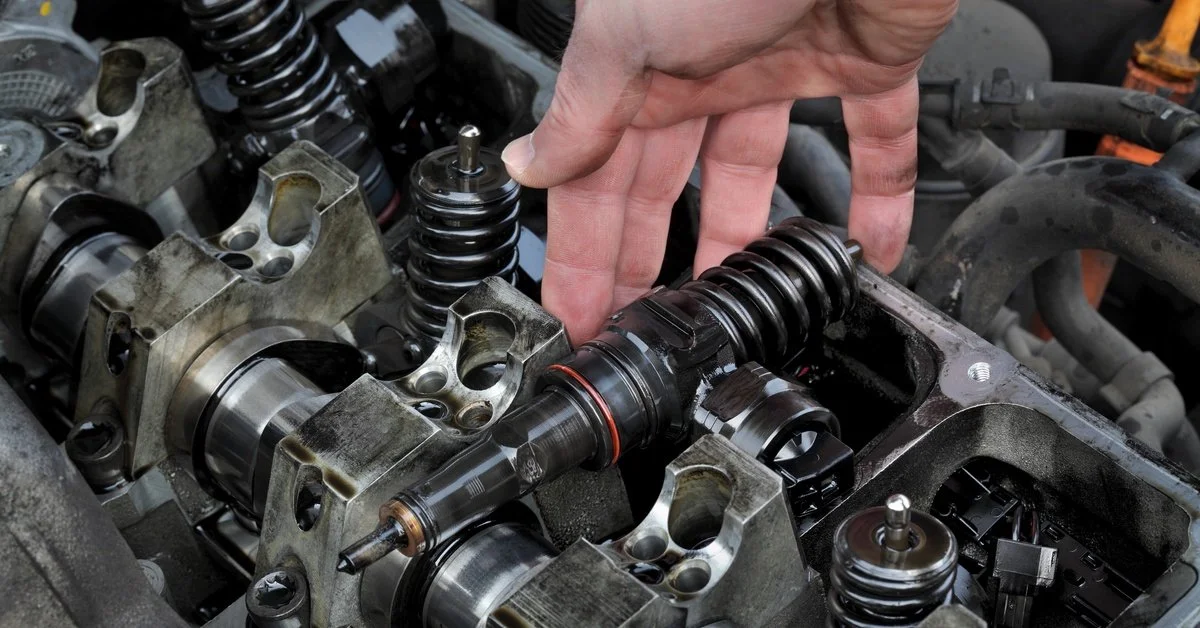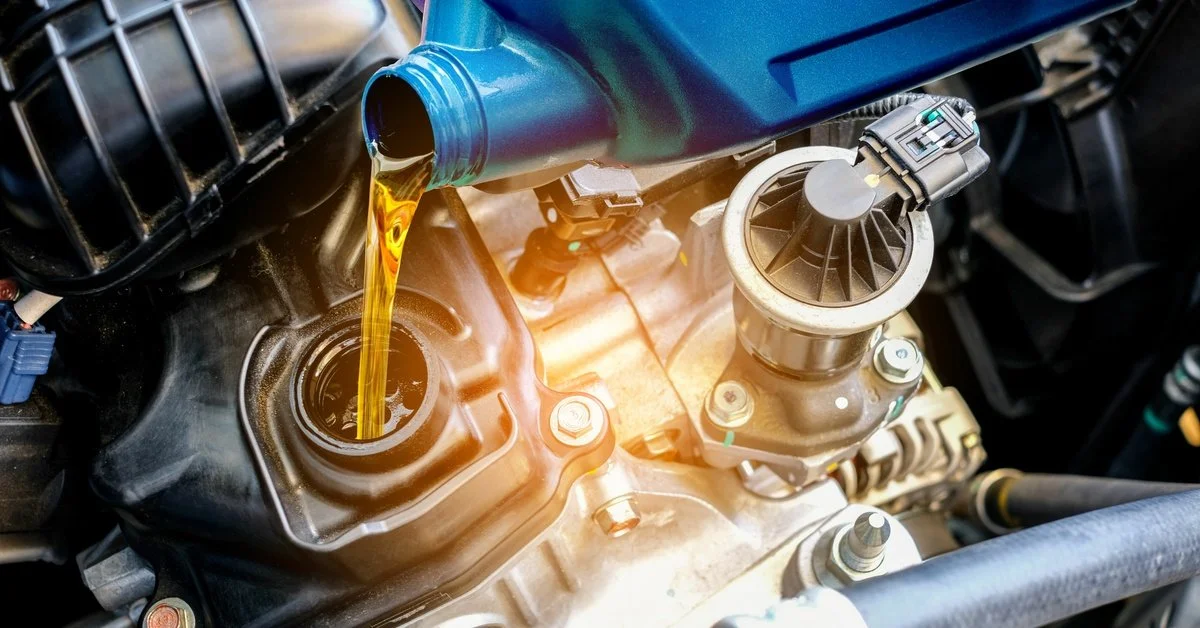10 Signs Your Diesel Engine Needs an Oil Change
Diesel engines power everything from pickup trucks to industrial generators, delivering the reliability and torque that millions of people depend on daily. Yet even the most robust diesel engine has one critical vulnerability: neglected oil changes.
Diesel engines tend to operate under more extreme conditions than traditional gasoline engines. This means higher compression ratios, greater heat, and increased contamination from combustion byproducts. With so much wear and tear, regular oil maintenance is essential for engine longevity. Here are the top ten signs your diesel engine needs an oil change, so you can learn how to keep your vehicle running strong for years to come.
Sign 1: Dark or Dirty Oil
Fresh diesel engine oil typically appears amber or honey-colored on the dipstick. As it circulates through your engine, it gradually darkens from heat exposure and contamination pickup.
Check your oil color regularly by pulling the dipstick and examining the oil film. Healthy oil should still show some translucency, even if it’s slightly darkened. When oil turns completely black, thick, or gritty, that means it’s saturated with contaminants and losing its protective properties.
Sign 2: Increased Engine Noise
A well-lubricated diesel engine runs with a characteristic rumble, but distinct changes in sound quality often indicate oil problems. When oil breaks down or runs low, metal components begin making direct contact, creating unusual noises.
Listen for increased ticking, rattling, or grinding sounds, especially during startup or idle. These noises typically emerge from the valve train, pistons, or other moving parts that depend on adequate oil film protection.
Sign 3: Decreased Fuel Efficiency
Degraded engine oil creates internal friction that forces your diesel engine to work harder, directly impacting fuel economy. When oil loses its lubricating properties, moving parts experience increased resistance, requiring more energy to maintain normal operation.
Monitor your fuel consumption patterns regularly. A sudden drop in miles per gallon, especially combined with other symptoms, often points to oil-related issues. While fuel efficiency can vary due to driving conditions, load, and maintenance factors, consistent decreases warrant investigation.
Sign 4: Overheating Engine
Engine oil serves dual purposes: lubrication and heat dissipation. As oil circulates, it absorbs heat from moving parts and carries it away from critical components. When oil breaks down or runs low, this cooling function deteriorates rapidly.
Watch your temperature gauge for readings above the normal operating range. Overheating can occur gradually or suddenly, depending on oil condition and operating demands. Diesel engines generate significant heat under load, making adequate oil cooling essential.
Sign 5: Visible Exhaust Smoke
Exhaust smoke color provides valuable diagnostic information about engine oil condition. Blue or white smoke often indicates oil burning in the combustion chamber, while black smoke suggests incomplete fuel combustion, potentially related to engine stress due to poor lubrication.
Blue smoke typically appears during startup or acceleration, indicating oil seepage past worn rings or valve seals. While some smoking might result from worn engine components, degraded oil can accelerate these wear patterns.
Sign 6: Oil Pressure Light Is On
Your dashboard oil pressure warning light serves as an early alert system for lubrication problems. Modern diesel engines monitor oil pressure continuously, triggering warnings when pressure drops below safe operating levels.
Never ignore an illuminated oil pressure light. Low pressure can result from insufficient oil quantity, pump failure, or oil too thin to maintain proper pressure. Continuing to operate with low oil pressure can destroy your engine within minutes.
Sign 7: Engine Knocking
Engine knocking in diesel engines often stems from inadequate lubrication, allowing excessive clearance between components. This creates a distinctive metallic knocking or pinging sound, particularly noticeable under load or acceleration.
Knocking indicates metal-to-metal contact between pistons, connecting rods, or other critical components. Once knocking begins, rapid wear acceleration occurs, potentially leading to complete engine failure.
Sign 8: Difficulty Starting the Engine
Degraded oil creates additional startup resistance, making your diesel engine harder to turn over. Cold weather exacerbates this problem, as thick, contaminated oil provides poor flow characteristics during startup.
Notice if your engine cranks longer than usual before firing or if it seems to struggle during the starting process. While diesel engines naturally require more cranking than gasoline engines, significant changes in starting behavior often relate to oil condition.
Sign 9: Noticeable Oil Leaks
While oil leaks don’t always necessitate a change, they often accompany other symptoms and can accelerate oil loss. Inspect your parking areas regularly for dark spots or stains that might indicate leaking oil.
Common leak locations include the oil pan gasket, valve cover gaskets, and oil filter housing. Small leaks might seem insignificant, but they can quickly lead to low oil levels.
Sign 10: Scheduled Maintenance Reminder
Perhaps the most reliable indicator is your maintenance schedule. Diesel engines typically require oil changes every 5,000 to 10,000 miles, depending on operating conditions, oil type, and manufacturer recommendations.
Frequent towing, stop-and-go driving, dusty environments, or extreme temperatures necessitate more frequent changes. Commercial applications often require shortened intervals due to constant high-load operation.
Why AMSOIL Diesel Engine Oil Is the Best Choice
AMSOIL synthetic diesel engine oils provide superior protection compared to conventional alternatives. Their advanced formulations resist breakdown under extreme heat and pressure, extending drain intervals while maintaining optimal protection.
AMSOIL products offer enhanced detergent packages that keep diesel engines cleaner by reducing soot buildup and extending the life of components. Their superior flow characteristics provide better cold-weather starting and immediate startup protection. Investing in premium synthetic oil yields dividends through extended engine life, improved fuel economy, and reduced maintenance costs over time.
Your diesel engine represents a significant investment. Recognizing these ten signs your diesel engine needs an oil change can save you thousands in repair costs and keep your vehicle running reliably for years to come. Address oil changes proactively based on your operating conditions and maintenance schedule. The cost of prevention is always less than the price of repair. If you’re looking for a diesel engine oil supplier, 1972oil has a wide selection of AMSOIL products that won’t let you down.



